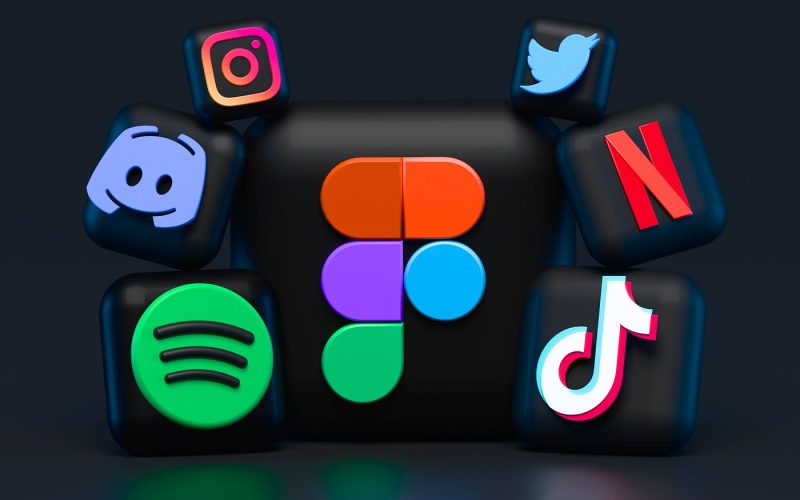Introduction
Music streaming services have revolutionized the way we listen to music, providing instant access to millions of tracks at our fingertips. As technology advances and consumer preferences evolve, the future of music streaming services promises to bring exciting changes and innovations. This article explores the trends, challenges, and potential developments shaping the future of music streaming.
Trends Shaping the Future of Music Streaming
-
Personalization and AI-Driven Recommendations
Personalization will continue to be a key trend in music streaming. Services like Spotify and Apple Music already use algorithms to suggest songs and playlists based on listening habits. In the future, advancements in artificial intelligence (AI) will make these recommendations even more accurate and tailored to individual preferences. AI will analyze not only listening history but also contextual factors like mood, time of day, and activity to curate the perfect soundtrack for every moment.
-
High-Fidelity Streaming
As consumers demand better sound quality, high-fidelity streaming will become more prevalent. Platforms like Tidal and Amazon Music HD have already introduced high-resolution audio streaming options. Future developments may include wider adoption of loss less audio formats and innovations in audio compression technology, providing listeners with studio-quality sound without the need for large data consumption.
-
Integration with Smart Devices
The integration of music streaming services with smart devices will deepen. Voice-activated assistants like Amazon Alexa, Google Assistant, and Apple Siri will offer more seamless music playback experiences. Smart speakers, wearables, and connected home systems will become central hubs for music streaming, allowing users to control their music with voice commands and enjoy multi-room audio setups.
-
Interactive and Social Features
Music streaming platforms will increasingly incorporate interactive and social features. Users will be able to create and share playlists with friends in real-time, host virtual listening parties, and engage with artists through live-streamed concerts and Q&A sessions. Social media integration will also enhance music discovery, enabling users to see what their friends are listening to and get recommendations based on social circles.
-
Enhanced Artist-Fan Engagement
The future of music streaming will prioritize stronger connections between artists and fans. Direct-to-fan platforms will enable artists to share exclusive content, behind-the-scenes footage, and personalized messages. Crowdfunding and fan-supported models will provide new revenue streams for artists, allowing them to release music independently and maintain creative control.
Challenges Facing Music Streaming Services

-
Royalty and Licensing Issues
One of the biggest challenges for music streaming services is the ongoing issue of royalty payments and licensing. Artists and record labels often argue that streaming platforms do not fairly compensate them for their work. Future solutions may involve new licensing agreements, block chain technology for transparent royalty distribution, or alternative business models that ensure fairer compensation for creators.
-
Data Privacy and Security
As music streaming services collect vast amounts of user data to enhance personalization, concerns about data privacy and security will grow. Companies will need to implement robust measures to protect user information and comply with evolving data protection regulations. Building trust with users by being transparent about data usage and implementing strong security protocols will be crucial.
-
Market Saturation and Competition
The music streaming market is becoming increasingly saturated, with major players like Spotify, Apple Music, Amazon Music, and newcomers vying for market share. To stay competitive, services will need to differentiate themselves through unique features, exclusive content, and superior user experiences. Partnerships with artists, record labels, and tech companies will be key to offering innovative services that attract and retain users.
-
Adaptation to Changing Consumer Habits
Consumer habits are constantly evolving, influenced by technological advancements and cultural shifts. Music streaming services must be agile and adapt to changing preferences, such as the growing popularity of short-form content and the rise of social media-driven music discovery. Staying ahead of trends and anticipating future changes in how people consume music will be vital for long-term success.
Innovations to Watch

-
Virtual Reality (VR) and Augmented Reality (AR) Experiences
VR and AR technologies hold the potential to transform music streaming into immersive experiences. Imagine attending a live concert from the comfort of your home through VR or using AR to overlay lyrics and artist information while listening to a song. These technologies will create new ways for fans to engage with music and provide artists with innovative platforms for performances.
-
Block chain for Transparent Royalty Distribution
Block chain technology can address the complexities of royalty distribution by providing a transparent and immutable ledger of music rights and transactions. This innovation could ensure that artists, songwriters, and producers receive fair compensation for their work in real-time, reducing disputes and improving trust in the music industry.
-
AI-Generated Music
AI-generated music is an emerging field that could significantly impact the music industry. AI algorithms can compose original music, create remixes, and even mimic the styles of famous artists. While this raises questions about creativity and originality, it also offers exciting possibilities for new forms of music production and collaboration between humans and machines.
-
Sustainability Initiatives
As environmental concerns grow, music streaming services will likely adopt sustainability initiatives. This could include using renewable energy to power data centers, reducing carbon footprints, and promoting eco-friendly practices within the industry. Sustainable streaming practices will appeal to environmentally conscious consumers and contribute to the overall goal of reducing the music industry’s environmental impact.
Conclusion
The future of music streaming services is bright, with numerous trends and innovations set to enhance the way we experience music. Personalization, high-fidelity streaming, and integration with smart devices will make music more accessible and enjoyable. However, challenges like royalty issues, data privacy, and market competition must be addressed to ensure sustainable growth. By embracing new technologies and adapting to changing consumer habits, music streaming services can continue to revolutionize the music industry and bring us closer to the artists and songs we love.












